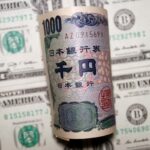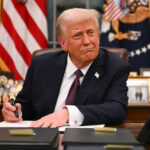Nicolas Maduro “wins” presidential elections but the opposition, the US and US-aligned governments in the region refuse to accept results. Eyes are now on Brazil, Mexico and Colombia.
On Sunday, Venezuela’s incumbent President Nicolas Maduro won a third term in the presidential elections after obtaining 51.2% of the vote share. That’s according to Venezuela’s National Electoral Council (CNE). But did he? That is the question millions of Venezuelans are now asking themselves and each other. According to the CNE, the main opposition candidate, Edmundo Gonzalez, won 44.2% of the votes cast.
González is a former Venezuelan diplomat who was put out to pasture in 2002 after supporting the failed US-backed coup against Hugo Chavez. He is widely seen as a stand-in for Maria Corina Machado, a US-backed politician who was until recently the opposition front runner before being banned from holding political office after being charged with corruption as well as for her full-throttled support for US intervention.
During her career, Machado has backed US-led sanctions against Venezuela’s economy, the Trump administration’s farcical attempt to impose Juan Guaido as interim president, and has even asked foreign governments, including Israel and Argentina’s, to intervene militarily in Venezuela. It is crystal clear what a González-Machado ticket will mean for Venezuela: a government in thrall to the US and Israel which, like Milei’s in Argentina, will rapidly cool relations with the US’ main strategic rivals, China and Russia, lend its full support to Israel’s Gazacide and may even ask to join NATO.
“Groundhog Day in Venezuela”
Election day itself was surprisingly peaceful, though tensions have been rising since the results were announced.
BREAKING: The protestors in Venezuela 🇻🇪 that Elon Musk et. al. support have set fire to a hospital tonight.
Hospitals have traditionally been a favourite target of the Venezuelan right-wing. pic.twitter.com/HJFNfzAM14
— Alan MacLeod (@AlanRMacLeod) July 30, 2024
Maduro’s vote haul was down by more than a million compared with the presidential election of 2018. Following the announcement of Maduro’s triumph, US Secretary of State Anthony Blinken was among the first to cast aspersions on the results:
“We have serious concerns that the announced result does not reflect the will or the votes of the Venezuelan people. It is critical that every vote is counted fairly and transparently, that election officials immediately share information with the opposition and independent observers without delay, and that electoral authorities publish the detailed tabulation of the votes.”
Whether the US recognises the elections results is ultimately moot. Even before the elections it was among a handful of countries in the world that still failed to recognise the legitimacy of the Maduro government. As Mint Press News reports, the US government has been working overtime to dislodge Maduro’s socialist government, spending tens, if not hundreds of millions of dollars on “democracy promotion” in the country since Chavez’s electoral triumph in 1998.
Venezuela’s opposition also refused to recognise the results, just as it did in 2015 and 2019. As the Argentine geopolitical analyst Bruno Sgarzini writes, welcome to “groundhog day in Venezuela”.
Before the official results were even announced, Machado had proclaimed Gonzalez as “president-elect.” Venezuela, she said, “has a new president elect and his name is Edmundo González, and everybody knows it.”
She also claimed that the candidate of the Democratic Unitary Platform (or PUD, for its Spanish initials) had won 70% of the votes, and that Maduro had obtained just 30%, adding that PUD had won in all of the nation’s 23 states. This claim was apparently based on the quick counts coming out of just 30% of the voting sites — which invites the question: why did the opposition have access to such a small sample of results?
There were other anomalies to the proceedings. For example, it took the CNE far longer than usual to announce the results and by Tuesday evening there was still no breakdown of results by polling station. The Carter Center, which often sends election observers to Venezuela, has called on the CNE to “immediately publish the presidential election results at the polling station level.” So, too, has Brazil’s Lula government.
Celso Amorim🇧🇷: “The main reason we are cautious is that they have not made the results public, polling site by polling site. What the government has given so far is a single number, but they need to show how they arrived at that number: record by record.” https://t.co/JIEVAVfa7W
— Alex Bare (@alexbaretv) July 29, 2024
Exit polls conducted by US pollster Edison Research giving González a more than 30-point lead over Maduro appears to have played a key role in shaping the post-election narrative. One of the first people to publish this information was Juan Forero of The Wall Street Journal. Venezuelan opposition figures such as Leopoldo López seized on the data and spread it across social media. Given its provenance — a US journalist sharing information from a US pollster — the information was treated as gospel.
“The results are undeniable,” Lopéz declared just minutes before the CNE announced the official results. “The country has chosen the path of peace.”
What Lopéz and other members of the opposition didn’t mention (but Ben Norton does) is that Edison Research is a CIA-linked firm with a long history of providing US state propaganda organs with convenient polling results in geopolitical hotspots such as Ukraine, Georgia and Iraq:
“Venezuela’s right-wing opposition and US media outlets claim there was fraud in the July 28 election based on an exit poll done by US government-linked firm Edison Research, which works with CIA-linked US state propaganda organs and was active in Ukraine, Georgia, and Iraq.” https://t.co/WNrUk6czFm
— WikiLeaks (@wikileaks) July 29, 2024
It is too early to divine the veracity of the opposition’s allegations of electoral fraud. As I’ve already noted, there were anomalies in the reporting process. And Maduro clearly has a motive and the means to commit electoral fraud. That said, disinformation on social media has played a key part in shaping the narrative. That includes a fake video of people purportedly stealing ballot boxes that was retweeted by Elon Musk, who appears to be developing a penchant for meddling in Latin American affairs on the side of US-aligned forces.
The Migration Effect
According to the CNE, voter turnout was 59% — in a country whose population has slumped by around 25% over the past decade as a result of mass migration. Abstention due to migration appears to have played a major role in the result.
In the past ten years, Venezuela’s population has shrunk by roughly a quarter after more than seven million people have fled the country trying to escape a brutal hyperinflationary crisis. A large part of that crisis was made in the USA. As Aaron Maté points out in the tweet below, John Bolton himself recently admitted to the Washington Post that the goal of US sanctions was not only to make Venezuela’s economy scream but also to “drive” its people out of the country.
Ahead of Venezuela’s election, John Bolton admitted to the Washington Post that he knew that the Trump admin’s crippling sanctions and coup attempt against Venezuela would destroy its economy and force millions to flee:
“There was no doubt the sanctions, along with the general… pic.twitter.com/woW7cVYlf3
— Aaron Maté (@aaronjmate) July 29, 2024
Even before the Trump administration ratcheted the US’ sanctions regime against Venezuela in 2019, to coincide with its appointment of Juan Guaido as Venezuela’s interim president, the Centre for Economic and Policy Research (CEPR) published a report alleging that U.S. sanctions on Venezuela had killed tens of thousands of people by crippling its ability to produce its number-one export commodity, oil, or import basic goods. Here’s Jeffrey Sachs explaining to Democracy Now how that process played out:
🇻🇪‼️You will hear none of this on mainstream media:
Prof. Jeffrey Sachs details how the US systematically destroyed the Venezuelan economy through sanctions, killing 40,000+, in order to force Venezuelans to abandon the Bolivarian revolution and topple Maduro… pic.twitter.com/Wa7IH93bXo
— Afshin Rattansi (@afshinrattansi) July 29, 2024
Calling for Another Coup
Following Sunday’s elections, 10 Latin American countries (Argentina, Chile, Costa Rica, Ecuador, Guatemala, Panama, Paraguay, Peru, the Dominican Republic and Uruguay) and the US signed a letter demanding that the “will of the Venezuelan people be respected at the polls.”
All of the governments are closely aligned with the US and their message bore a strong resemblance to the August 8, 2017 declaration of the 12-nation Lima Group, a multilateral body that was established with the goal of pursuing a peaceful overthrow of Venezuela’s government exit to Venezuela’s crisis. As Szargini says, this is groundhog day in Venezuela.
Of course, it is not just the US that has spent the past 20 years or so trying to topple Venezuela’s Chavista government. So, too, has the British government, which “has surreptitiously given £450,000 from its overseas aid budget to establish an ‘anti-corruption’ coalition in Venezuela through a controversial fund,” as Declassified UK reported in 2020. The UK government and the companies whose interests it represents want access to the huge deposits of oil lying under Venezuelan soil or seabed.
In 2016, Maduro accused factions of the Spanish political, business and financial establishment of illegally financing Venezuela’s opposition. In the lead up to the elections a delegation of nine members of Spain’s Popular Party (PP) went to Caracas where they were duly refused entry and forced to fly back to Spain. Spain’s Pedro Sánchez government has responded by accusing the PP of using Spanish public funds to put on a “political show” in a foreign country.
One of the most vicious attack dogs this time round has been Argentine President Javier Milei, who tweeted the following message on X even before the official elections results were announced:
“The data reveals a crushing victory of the opposition and the world is waiting for (the Maduro government) to accept defeat after years of socialism, misery, decadence and death. Argentina will not recognise another fraud, and expects the Armed Forces (of Venezuela) to defend democracy and the popular will this time round.”
Former Argentine President Mauricio Macri also urged Venezuela’s armed forces to seize this opportunity to get on the right side of history and guarantee that the will of the Venezuelan people is honoured. In other words, two Argentine presidents, one current, one former, are publicly calling for a military coup in a neighbouring country, with all the chaos, destruction and bloodshed that would entail.
But even this is nothing new. Five years ago, it was Brazil’s then-President Jair Bolsonaro who was talking about mobilising Venezuela’s armed forces against the Maduro government:
“The intention of the United States and ours is to create a fissure, a division, in the Venezuelan Army. There is no other way because, as I said some time ago and I was criticized, it is the Armed Forces who decide whether a country is in a democracy or a dictatorship.”
Somewhat less rabid statements were made by many of the governments of the aforementioned countries. The Costa Rican government said that it does not recognise Maduro’s election, calling it “fraudulent” and saying it “repudiates” it. Peru’s government, led by an unelected president with a 5% approval rating, also called the election “fraudulent”. Guatemalan President Bernardo Arevalo said his government is “very hesitant” to accept the results while Ecuador’s President Daniel Noboa called for a meeting of the Permanent Council of the Washington-based Organisation of American States to discuss the crisis in Venezuela.
Chile’s ostensibly left-of-centre President Gabriel Boric also cast doubt on the election results, describing them as “difficult to believe” and stating that Chile will not recognise data “that is not verifiable.”
Maduro to Lose More Local Allies?
Maduro is not completely isolated and his government has ridden out equally grave crises in the past. Whether he is able to ride this one out will depend on whether he maintains the support of Venezuela’s armed forces.
A number of Lat Am countries, including Honduras, Bolivia, Nicaragua and Cuba, have ratified his electoral victory. Further afield but no less importantly, both Russia and China also congratulated Maduro on his triumph. China’s Foreign Ministry spokesman Lin Jian said that Beijing is “eager to collaborate with Venezuela to further strengthen their all-weather strategic partnership, aiming to benefit both nations’ people.”
However, as of the time of writing, neither Brazil, Mexico nor Colombia, three key nations that in recent years have helped the Maduro government withstand the siege initiated by the Lima Group, had failed to recognise the election results. If one or more of these countries refuses to ratify Maduro’s triumph, his government risks becoming even more isolated in its direct neighbourhood.
Ominously, Mexico’s outgoing President Andrés Manuel Lopéz Obrador has said he will wait for all the votes to be counted before making an informed decision on the matter, which is uncharacteristic of him. Colombia’s Gustavo Petro, who is usually so vocal on foreign policy issues on social media, has opted for an uncharacteristically “eloquent silence,” as El País cheekily puts it.
Of the three countries, the one that is most likely to break ranks with Venezuela is Lula’s Brazil. Brazilian President Luiz Inácio Lula da Silva does not want to be perceived at home or abroad as supporting an authoritarian regime on Brazil’s borders. Just over a week ago, he admitted in an interview with international news agencies that he was “scared” on hearing his Venezuelan counterpart, Nicolás Maduro, say that there could be a “bloodbath” and a “civil war” in Venezuela if he loses the elections:
I was scared by Maduro’s statement that if he loses the elections there will be a bloodbath; whoever loses an election takes a bath of votes, not blood. Maduro has to learn that when you win, you stay (in power); when you lose, you go.
But Lula also knows that if Maduro were to fall, there is a very real risk of Venezuela, which shares a border with Brazil, plunging into chaos. As the Wall Street Journal recently reported, US oil executives have been warning of this possible eventuality.
Lula also knows that if Venezuela’s rabidly right-wing opposition were to gain the upper hand in the country, another South American country would fall into Washington’s grip. Ecuador and Peru have already signed military partnerships with Washington over the past year while Milei’s government in Argentina has made huge concessions to Washington, including granting US SOUTHCOM a navel base in Patagonia.
Lest we forget, an attempted coup just took place in Bolivia. Like Venezuela, Bolivia is keen to join the BRICS+ grouping, which is presumably the last thing Washington wants, especially given their wealth of natural resources. As we have been reporting for the past year or so, the US is once again vigorously stirring the pot in its own “back yard” as it tries to regain geopolitical and strategic dominance over the American continent. The results could not be more clear.








